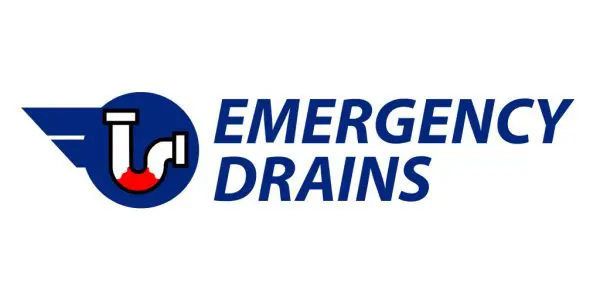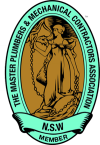The unpleasant odour, damage to property and health hazards a sewage backup poses can be overwhelming. And it’s not just a residential problem. Businesses can also suffer from sewage backups, leading to disruptions and costly repairs. Fortunately, there are steps you can take to prevent sewage backups from occurring in the first place. In this article, we’ll explore some practical tips to safeguard your property against this messy issue.
1. Regularly Maintain Your Sewer System
One of the most effective ways to prevent sewage backups is by maintaining your sewer system. This includes having your sewer lines inspected and cleaned periodically by a professional plumbing service or emergency plumber in Sydney. Routine maintenance helps identify potential issues before they escalate, such as tree root intrusion or clogs, allowing for timely repairs.
2. Dispose of Grease and Cooking Oil Properly
Grease and cooking oil are common culprits when it comes to sewer blockages. Avoid pouring these substances down the drain. Instead, let them cool and solidify in a container, then throw them in the trash. Implement this practice in your kitchen to prevent grease buildup in your pipes, which can lead to backups.
3. Use Hair Screens in Showers and Bathtubs
Hair is another frequent cause of drain blockages. Installing hair screens in your showers and bathtubs can capture hair before it goes down the drain. Regularly clean these screens to prevent clogs from forming.
4. Dispose of Non-Flushable Items Properly
Many items should never be flushed down the toilet, as they can easily lead to blockages. Items, such as sanitary products, baby wipes, paper towels and dental floss, should be disposed of in the trash, not the toilet. Encourage everyone in your household or business to follow this rule.
5. Be Mindful of Landscaping
The roots of trees and shrubs can infiltrate your sewer pipes, causing damage and blockages. If you’re planting near sewer lines, choose trees and plants with non-invasive root systems. Regularly inspect your outdoor plumbing to ensure there are no signs of root intrusion.
6. Install a Backwater Valve
A backwater valve is a device that prevents sewage from flowing back into your property. It’s particularly useful in areas prone to sewer backups due to heavy rain or flooding. A licensed plumber or emergency plumber in Sydney can install a backwater valve to protect your home or business from sewage backups during adverse weather conditions.
7. Properly Maintain Your Septic System
If your property has a septic system, regular maintenance is crucial. Get to know some plumbing maintenance tips for your home, and schedule regular septic tank pumping and inspections to prevent sewage backup issues. Follow the recommended maintenance schedule provided by your septic service provider.
8. Educate Your Household or Employees
Proper education is key to preventing sewage backups. Ensure that everyone in your household or business understands the importance of responsible plumbing practices. Create guidelines and communicate them clearly to prevent accidents and costly repairs.
9. Install Sump Pumps
In areas prone to flooding or heavy rainfall, consider installing a sump pump. A sump pump can help remove excess water from your basement and reduce the risk of sewage backups during storms.
10. Act Quickly When You Notice Warning Signs
Lastly, always be vigilant for warning signs of sewage backup, such as slow drains, gurgling sounds, or foul odours. If you notice any of these signs, contact an emergency plumber in Sydney immediately. Prompt action can prevent a minor issue from turning into a major sewage backup disaster.
When to Call an Emergency Plumber in Sydney
While prevention is key, there may be situations where immediate action is required to address sewage backup issues. If sewage starts backing up into your sinks, toilets or drains, it’s a severe issue that demands immediate attention. Contact an emergency plumber in Sydney to assess and resolve the problem to prevent contamination and property damage.
Remember, acting quickly during a sewage backup can help minimise the impact and save you from costly repairs.
Frequently Asked Questions
Q: What are the common causes of sewage backups?
A: Common causes of sewage backups include blockages in sewer lines, tree root intrusion, damaged pipes, heavy rainfall or flooding and improper disposal of grease or non-flushable items.
Q: Why is preventing sewage backups important?
A: Preventing sewage backups is important because they can lead to property damage, health hazards and costly repairs. It helps maintain a clean and safe environment for your family or employees.
Q: How often should I schedule maintenance for my sewer system?
A: Regular maintenance for your sewer system should typically occur annually or as recommended by a professional plumber. However, it may vary depending on factors like usage and the age of your plumbing.
Q: Can I prevent tree roots from intruding into my sewer pipes?
A: Yes, you can prevent tree root intrusion by choosing trees and plants with non-invasive root systems for your landscaping and scheduling regular inspections to detect and remove any root growth in your sewer pipes.
Q: What should I do if I notice warning signs of a sewage backup?
If you notice warning signs like slow drains, gurgling sounds, or foul odours, it’s essential to contact a professional plumber or emergency plumber in Sydney immediately to assess the issue and prevent it from escalating.
Q: Is it safe to use chemical drain cleaners to prevent clogs?
A: Chemical drain cleaners can be harsh on pipes and the environment. It’s generally safer to use preventive measures like hair screens and proper disposal practices to prevent clogs.
Emergency Drains: Your Local Trusted Sydney Plumbers
Sewage backups are not only messy but also a headache for homeowners and businesses alike. The good thing is, with proactive measures, responsible plumbing practices and the availability of emergency plumbers like Emergency Drains, you can minimise the risk of sewage backups. Regular maintenance, proper disposal of waste and the installation of preventative devices can go a long way in protecting your property.
When faced with plumbing and drainage issues, you can count on Emergency Drains. Our experienced and professional plumbers are ready to assist you, no matter how big or small the problem may be.
Don’t wait until it’s too late – take action today to safeguard your property from the inconvenience and damage of sewage backups. Call us on 1300 524 474.



